
As a repeat visitor to Glacier Country, I’ve become enamored with the area, envied its unabashed pride and learned that, here, seasonal changes aren’t month-to-month or even day-to-day, but minute-to-minute.
So, follow me during my most recent visit – 7,200 minutes (translation: five days) of exploring Big Sky Country’s northwesternmost region and its array of one-of-a-kind explorations during a mixture of meteorology.
I knew it was ‘game on’ when I boarded our vehicle in Missoula embellished with a decal reading: “There’s this place where life is driven by adventure.” I knew I was in that place. And I knew that place was Glacier Country.
There’s no better remedy for a cold-and-drizzly first night’s arrival on a day that began in another state with a 3 am wake-up alarm than a leisurely soak in a series of thermal pools, accompanied by a glass of wine (of course).
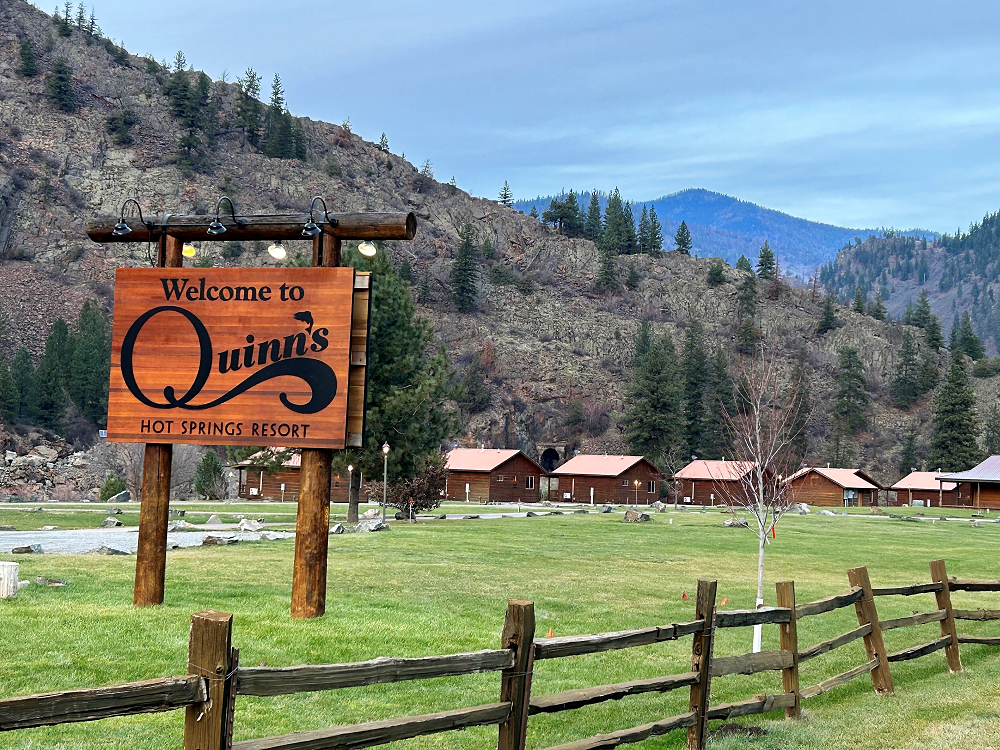
Meet Quinn’s Hot Springs (Paradise). Reached after driving along the Clark Fork River and crisscrossing the water source repeatedly, our evening’s lodging was a widely popular, always-booked resort. Comprised of two Western-style lodges, 25 canyon and riverside cabins, five 100-percent natural flow-through hot springs with temps varying from 100 to 106 degrees, two salt-treated pools, a 55-degree cold plunge and more, it’s also noted for its F&B. As an organic, locally sourced, fine dining eatery, Harwood House Restaurant featured such specialties as Bison Tenderloin, Wild Game Meatloaf and Apricot Soy Prawns. And in recognition of its hand-picked wine list, it was the recipient of the 2023 Wine Spectator Award of Excellence.
Tip: To stay at Quinn’s Hot Springs, make reservations as far out as possible.
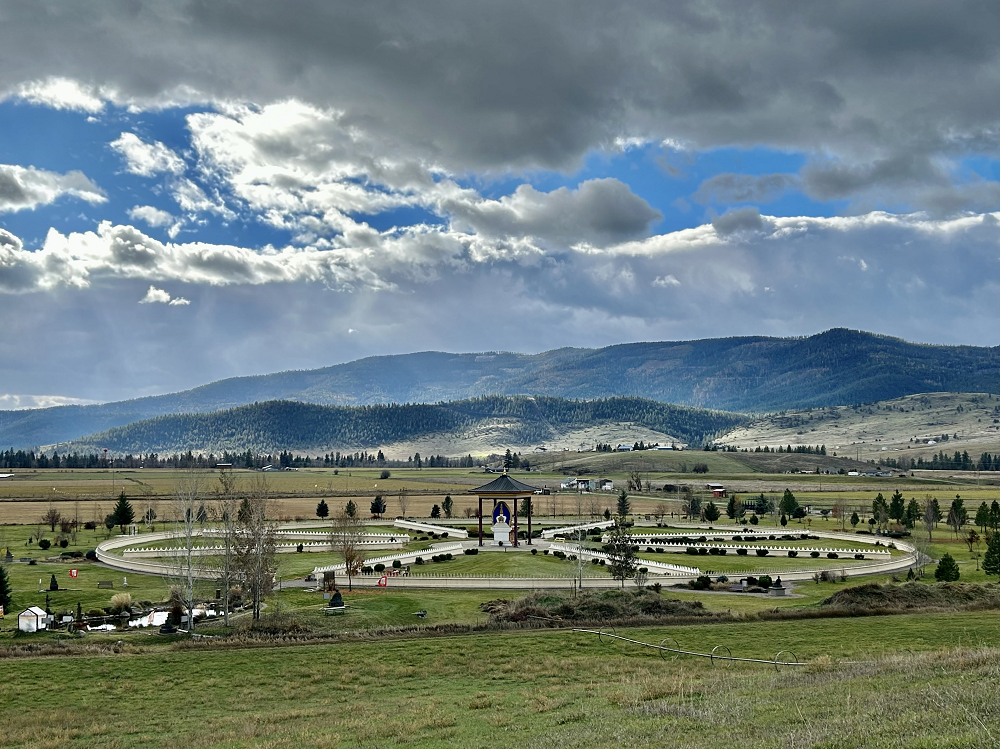
Leaving the following morning amid snow flurries, our stop within the Flathead Indian Reservation (Arlee) provided an unexpected surprise. Having once visited the nearby CSKT Bison Range (managed by the Confederated Salish and Kootenai Tribes), it seemed a departure from what is typically anticipated in Montana to arrive at the Garden of One Thousand Buddhas. Established in 2000 as an international center for peace, the circular monument was created as a spiritual, open-air site. Set on ten acres and complete with 1,000 hand-cast Buddha statues, 1,000 plants and trees and a prayer flag tent (adorned with 1,000 flags, I’m told), these quantities to the powers of ten, alone, gave me a sense of tranquility.
Tip: To best achieve the Garden’s serenity, explore it clockwise.
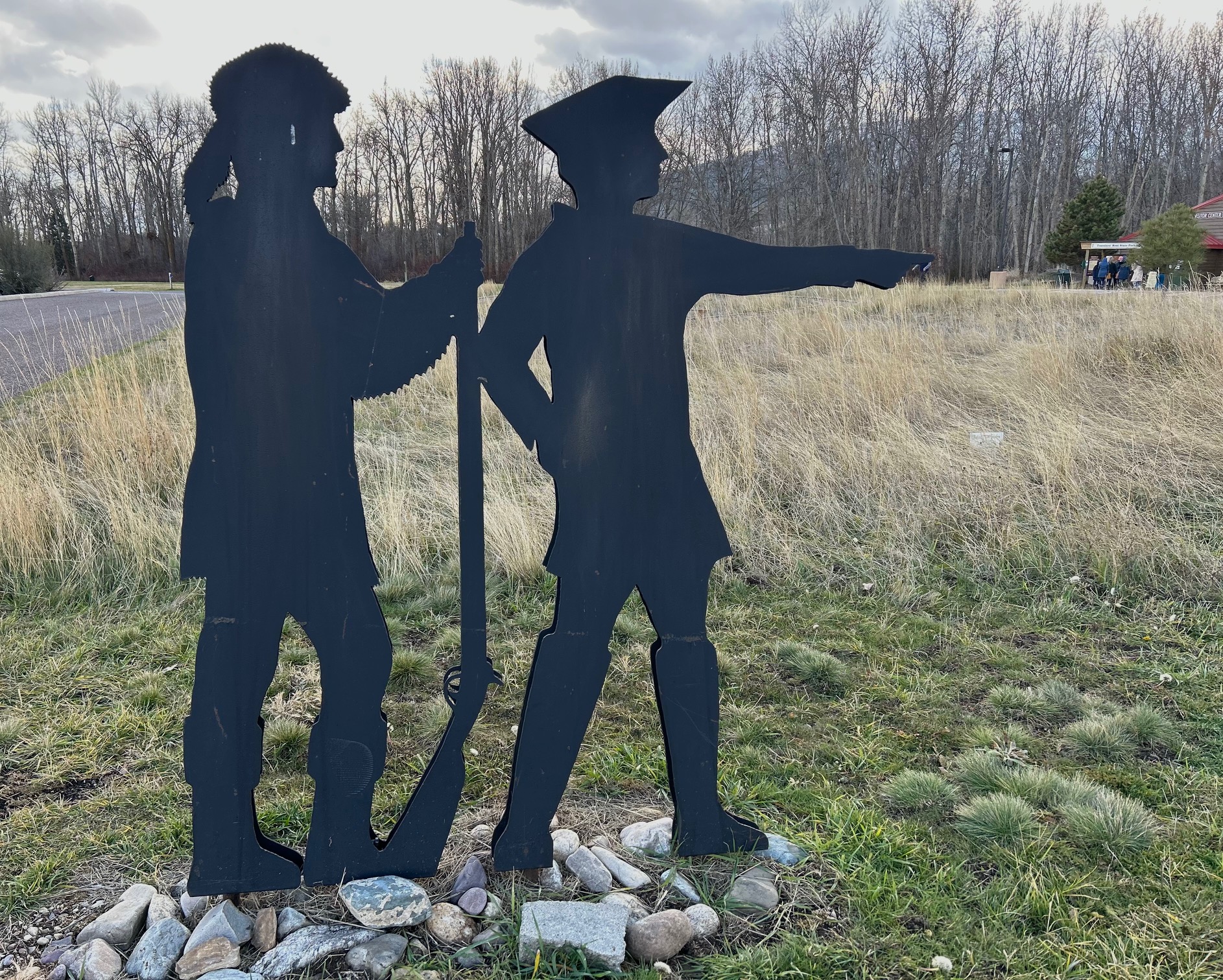
Known as the nation’s only archeologically verified stay of the Lewis and Clark Expedition, Travelers’ Rest State Park (Lolo) was reached beneath clear skies. A guided tour of the park brought to life this back-in-the-day setting of the Corps of Discovery’s two stopovers in this location (Fall 1805 and Summer 1806). And for birders, it’s renowned as the rich habitat of 115 documented species.
Tip: After hearing Frank Finley, a member of the Confederated Salish and Kootenai Tribes, regale our group with cherished Native American tales, attend the park’s storytelling series if available (offered only when snow’s on the ground).
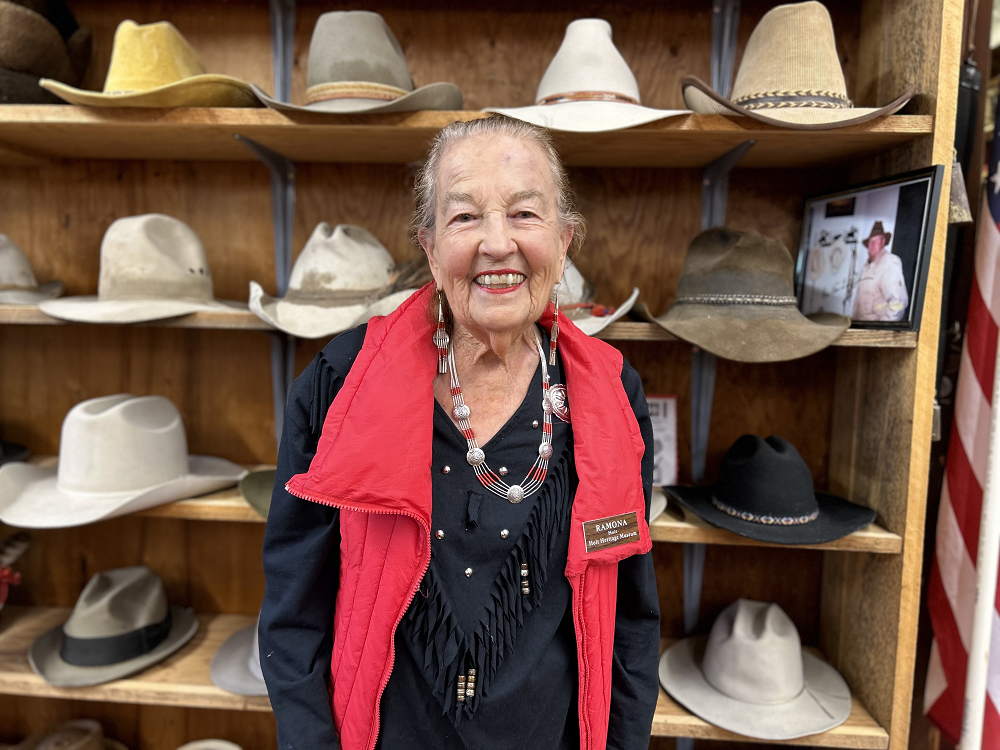
Nearby, Holt Heritage Center (Lolo) was a collection of “everything” Wild West – from well-known personalities’ cowboy hats, boots and saddles to tipis, firearms and even the rope used in Montana’s last hanging (1943). It was assembled over decades by a local legendary couple, the Holts – 90-something-year-old Ramona (a rodeo bareback rider) and her late husband, Bill (professional rodeo announcer). Of their impressive treasures, Ramona named a pair of President Reagan’s boots her most valued item. However, for most visitors (note: appointments are necessary), her stories are the true treasures.
Tip: If Ramona is at the Center (good chance), ask her about young Reba McEntire singing “The Star-Spangled Banner” at rodeos.
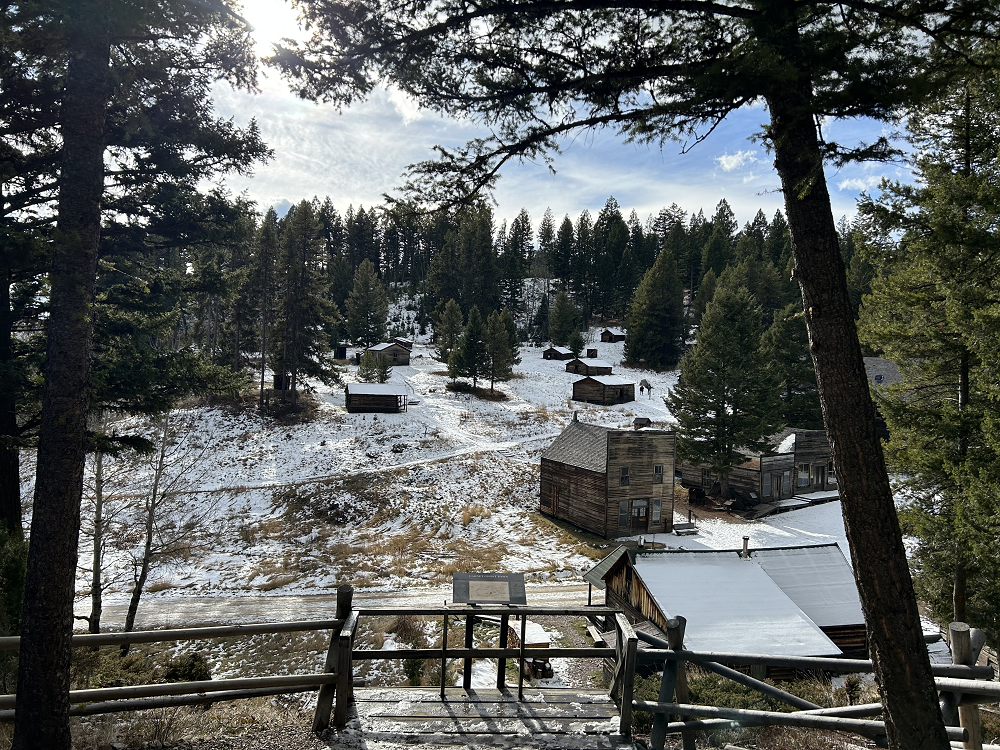
Celebrated as the state’s best preserved ghost town, Garnet Ghost Town (Garnet) was a gold mining community of approximately 1,000 in 1898. A big part of the adventure of visiting a once thriving/now abandoned settlement was getting there – 11 miles up a mountain road from the main thoroughfare – in the snow (first a light dusting, then thick-falling flakes). Little imagination was required to envision the harsh conditions its former residents endured – for peeking into the deserted cabins’ windows provided a peek into the past.
Tip: Bring your boots as its variety of trails makes Garnet Ghost Town a great hiking destination, too.
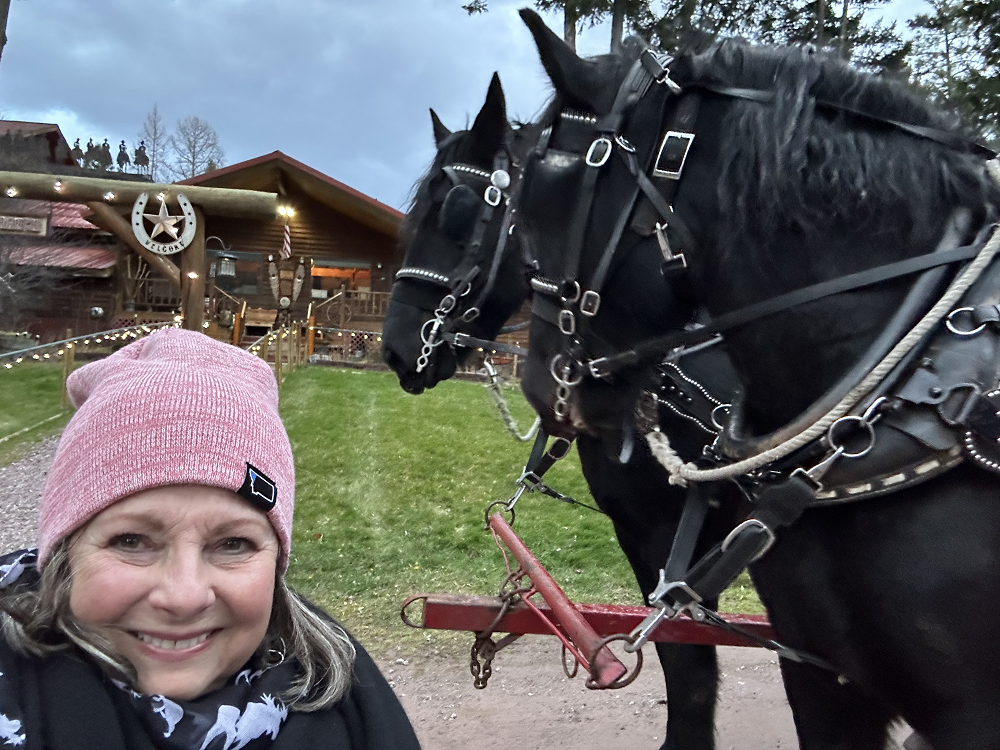
Our intro to Double Arrow Lodge (Seeley Lake) was pure Montana – a wagon ride past a stop sign reading “Whoa” and pulled by a duo of massive black horses, Charlotte and Sam. Steered by Jess, a Seeley resident since birth, local lore was dispensed throughout our journey.
The lodge – a rustic luxury resort – offered an assortment of accommodations, including a collection of stand-alone log cabins. Mission View, my home for the night, was a prime choice. Restored using original 1930-era logs and set on land overlooking the property’s pond and foothills of the Mission Mountains, the cabin’s private porch presented a surround-sound view. With an interior furnished with a gas fireplace in one corner, a wine frig in the other and a bathroom featuring a clawfoot soaking tub topped by a crystal chandelier, I could have lived there – especially after waking to deer on the lawn.
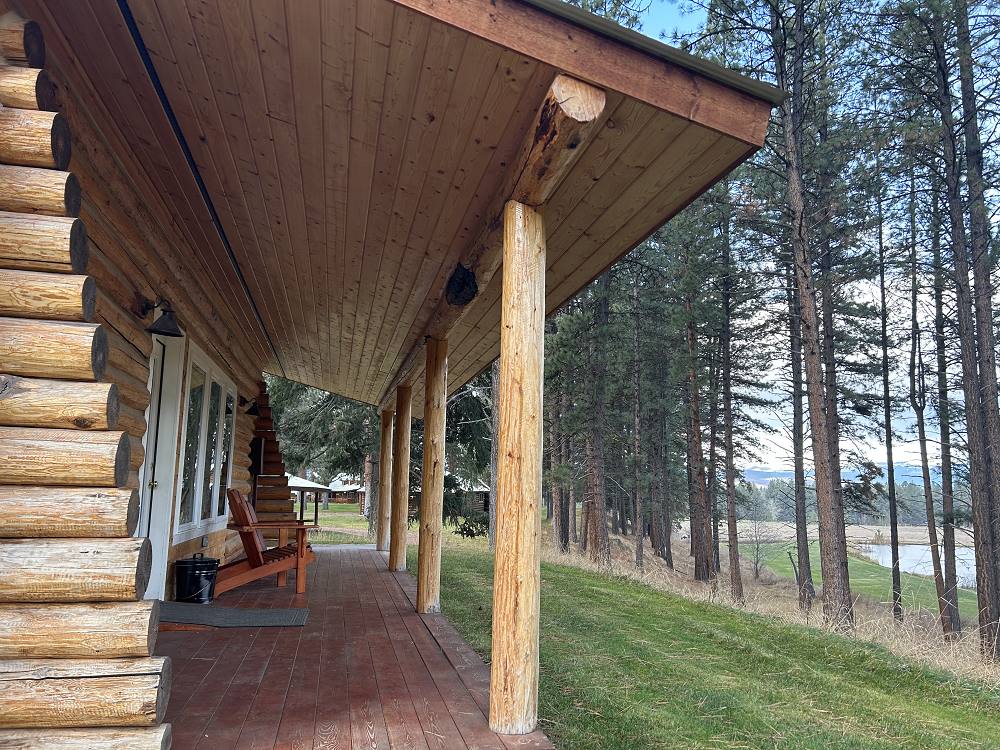
Greeted by the Great Room’s roaring blaze in its spacious stone fireplace when entering the Main Lodge and treated to an after-dinner bonfire, complete with the makings of s’mores, hospitality was at its Western-most best.
Seasons Restaurant did not disappoint – its regional creativity was on full display. Featuring a cyclical menu, among our choices were a Jalapeno Huckleberry Margarita, Rattlesnake and Rabbit Sausage and Your Grandmother’s Bread Pudding. Again, its carefully curated wine list has repeatedly received the Wine Spectator’s Award of Excellence.
Tip: Evenings are dark and perfect for stargazing, but flashlights are helpful when returning from the Main Lodge to one’s cabin.
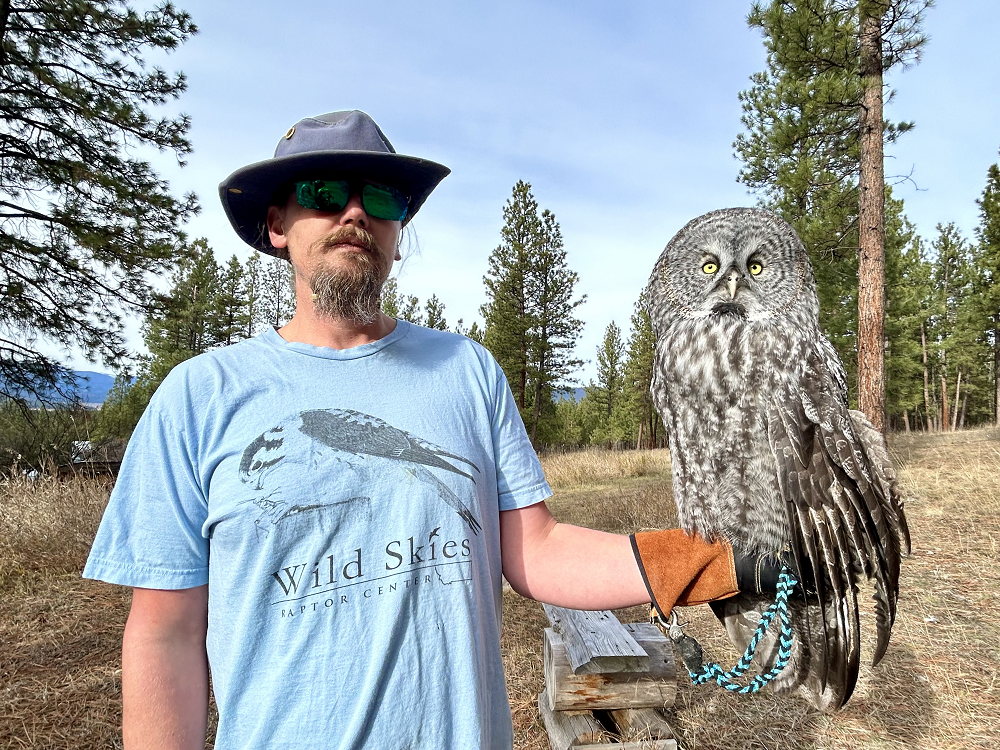
Wild Skies Raptor Center (Potomac) was dedicated to the care, rehabilitation and eventual release of injured raptors – including Nandu (Great Gray Owl), Frith (Great Horned Owl) and Merlin (Merlin Falcon) and it was possible to visit and meet the facility’s various residents, courtesy of founder/director Brooke Tanner and handler/assistant director Jesse Varnado. After displaying numerous raptors, Jesse was asked, “Do you have a favorite?” His reply: “Whoever’s on my arm.”
Tip: Visitors are welcome, but reservations are necessary.
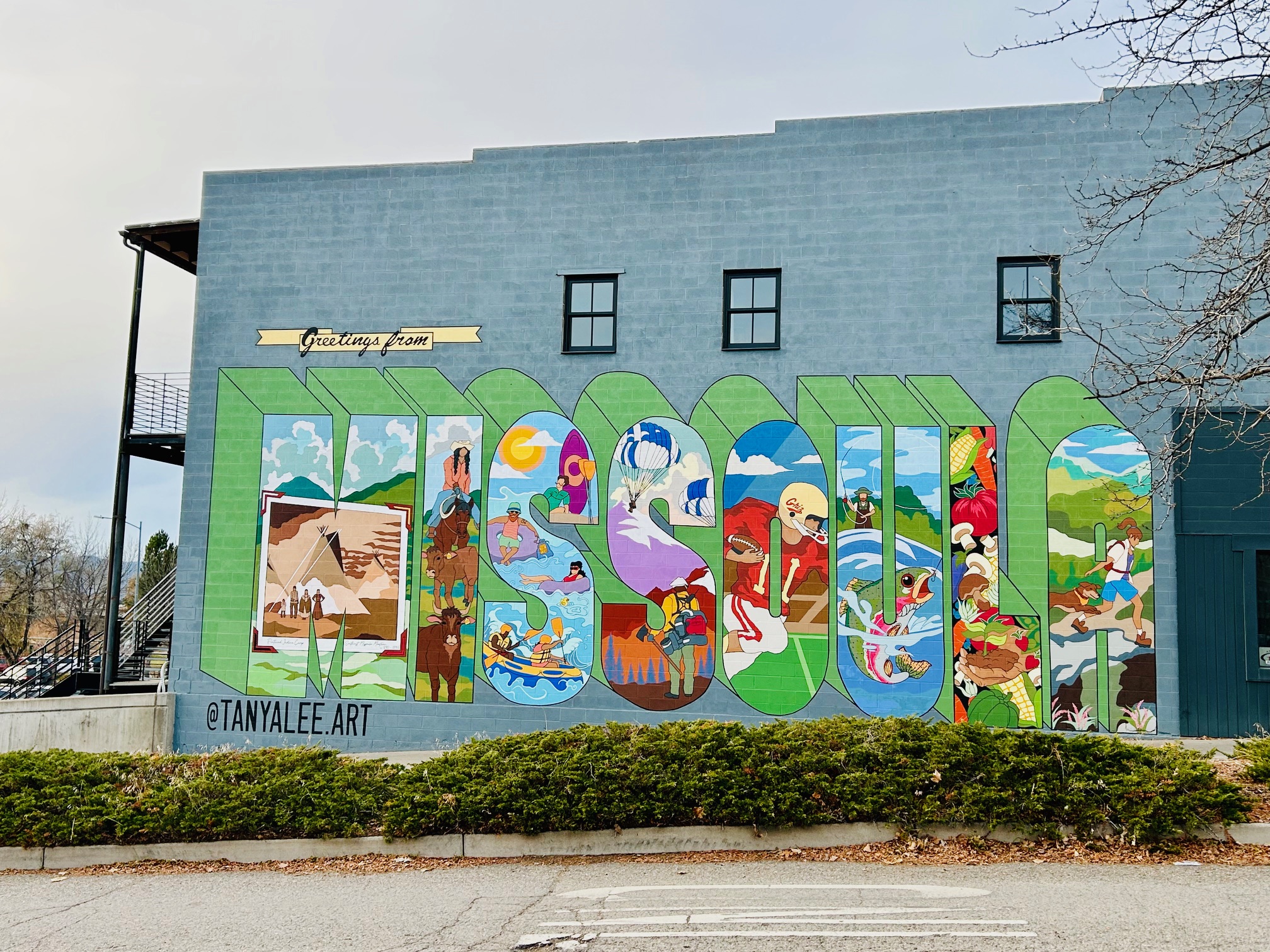
Missoula, the starting/stopping point of my visit and epicenter of Glacier Country, provided a flawless finale for my quest to experience the state’s most distinctive lures (some known, some not so known).
If only passing through the university town, it’s impossible to miss the 125-foot-long “M” on the western face of Mt. Sentinel. In tribute to the University of Montana, which it overlooks, the hike to this since-1908 city landmark seemed mandatory. Considered moderately challenging, the 1.2-mile out-and-back trek to an elevation of 620 feet and consisting of 11 switchbacks, served up Missoula’s best overview.
“Yee haw!” bellowed merry-go-round operator, Jeff Overturf, and my three-minute, 7.9-mph circular ride (the nation’s fastest) began atop a crafted wooden pony named American Beauty. The town’s beloved Missoula Carousel – described as the source of immense city commitment and sense of achievement – was completed courtesy of 100,000 hours of volunteer time, with each of the attraction’s creations hand carved by loving locals.
In the end, though the term, “Fall for Montana,” could be a seasonal slogan, I admit to being head-over-heels for Glacier Country – winter, spring, summer or . . . fall.









